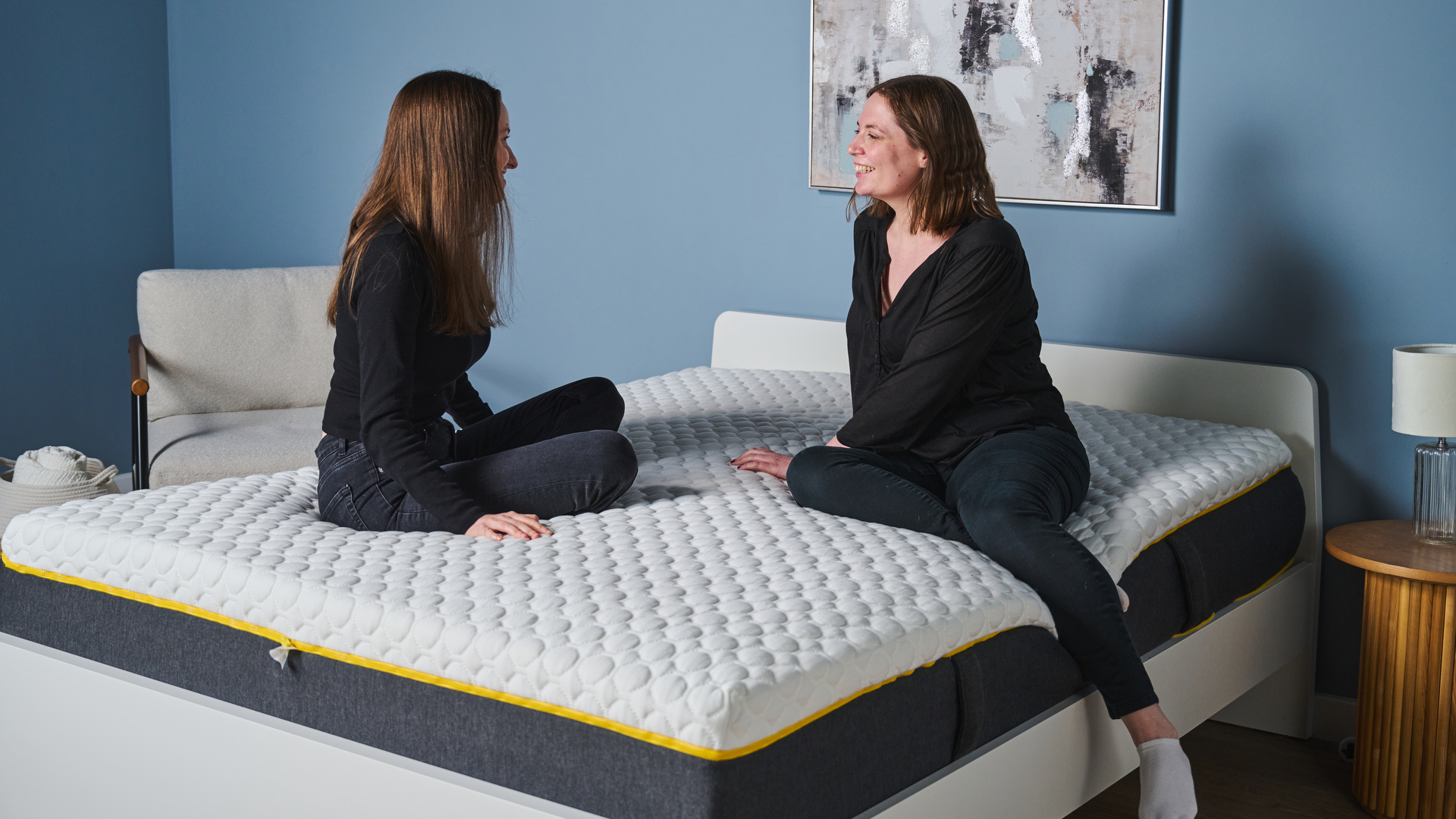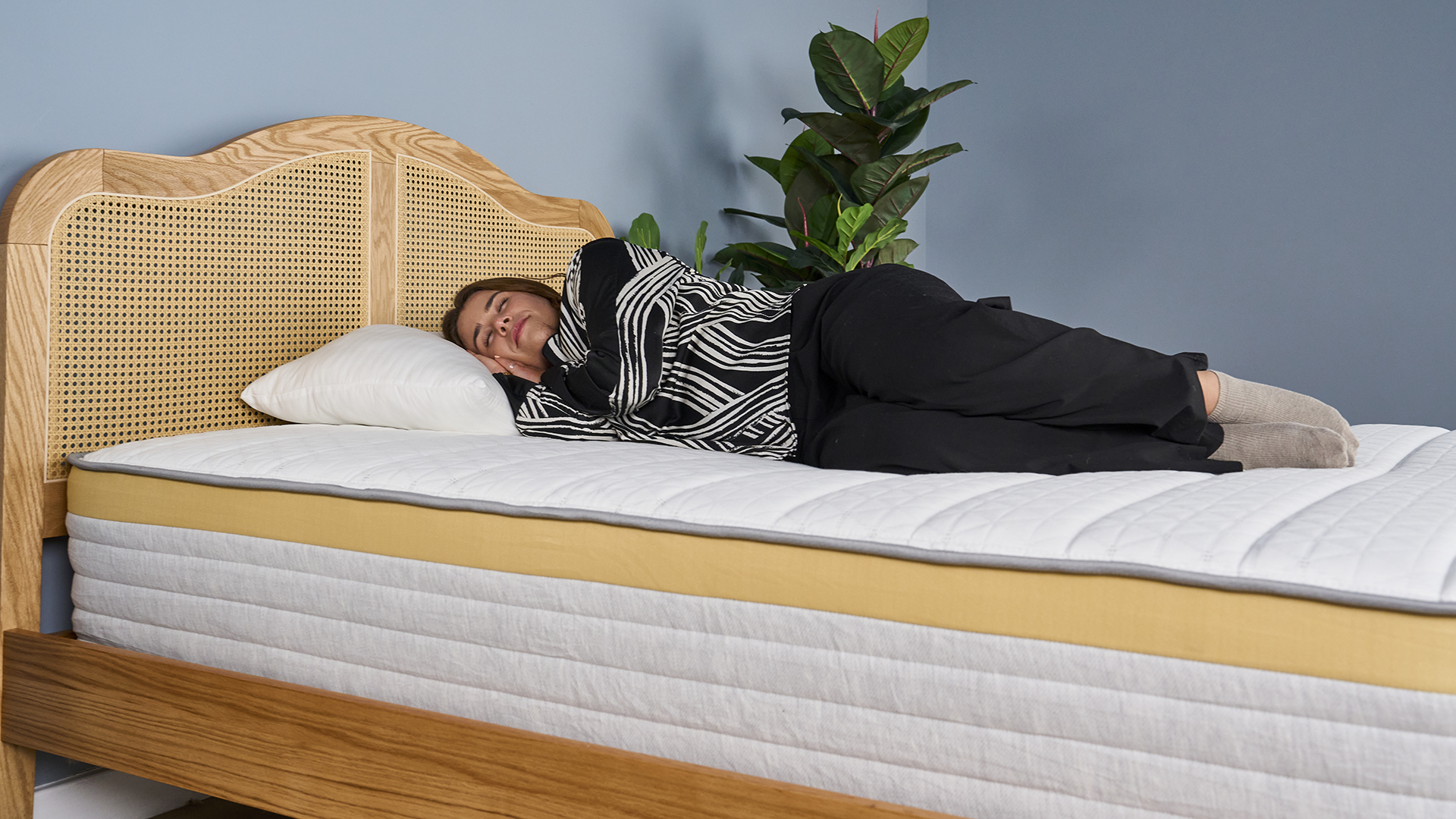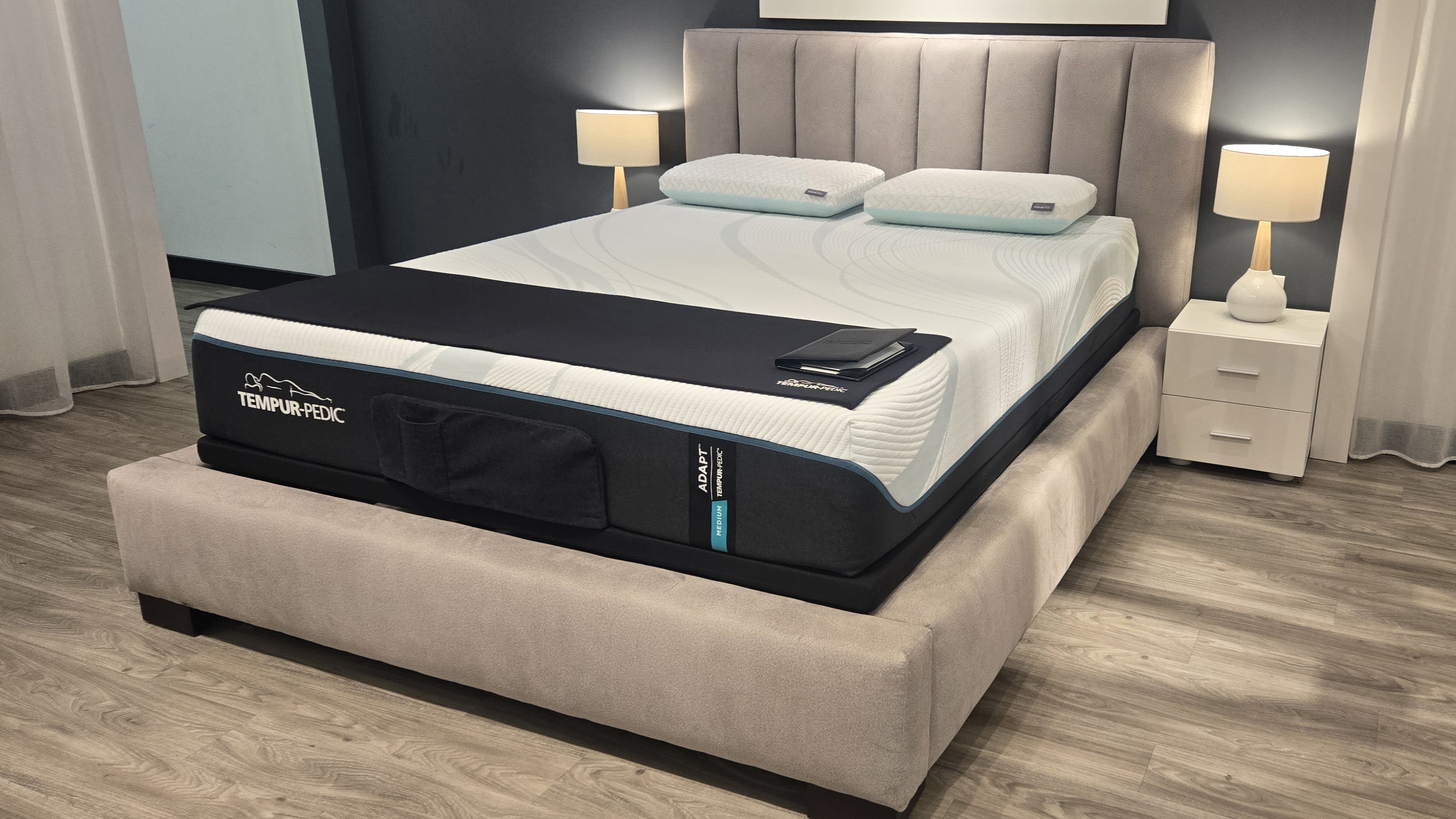What are mattress trials and how do they work?
All you need to know about mattress trials, including which brands offer the longest periods

Here at Tom's Guide, we tout the importance of buying a mattress with a trial period because it can take your body at least three weeks to adjust to a new sleep surface. Fortunately, most companies offer a try-out period of at least 90 days, but the finer details of these at-home trials can vary by brand.
There's no guarantee the best mattress of 2025 will be the right fit for your sleep needs — which is all the more reason to comb through the small print of these sleep trials. We’ll walk you through those specifics below so you're not met with unpleasant surprises.
What is a mattress trial?
A mattress trial is a set period of time within which you have to test your new mattress at home to make sure it’s the right choice for you. If you change your mind during the trial, you should be able to return the mattress and get a refund on your purchase. At most, you may have to pay a returns or processing fee.
You’ll come across sleep trials on all types of mattresses — from organic mattresses and hybrids to cooling mattresses and kids' beds.
What is the purpose of a mattress trial period?
If you've been sleeping on your current bed for a long time, your body needs to get acquainted with a brand-new sleep surface — whether it's softer, firmer, or a different type of material than you're accustomed to.
Thus, mattress manufacturers offer a trial period. These are more reliable than a five-minute lie down in a showroom, and they're also useful if you made an error in ordering, like choosing the wrong mattress size.
The downside is that unless you have acres of storage space and a lot of money to spend, you can only trial one mattress at a time.
We’re constantly reviewing mattresses at Tom’s Guide, so we know from experience that it can take at least a few weeks for your body to get used to a new mattress.
This is especially true if you’ve upgraded from an older, sagging mattress to one with plenty of support or if you’re switching from a traditional innerspring model to one of the best memory foam mattresses.
Sign up to get the BEST of Tom's Guide direct to your inbox.
Get instant access to breaking news, the hottest reviews, great deals and helpful tips.
How do mattress trials work?

Mattress trials are fairly similar across the board, though some sleep brands throw in a few caveats, which we’ll explain shortly. They may refer to these trial periods by different names too, such as ‘sleep trial’ or ‘at-home trial. ’
A trial period gives you a specific number of nights to try out the mattress. This period of time is decided by the manufacturer and is non-negotiable.
The average length of a mattress trial is 100 nights, although brands such as Nectar, DreamCloud, Saatva, and Avocado Green offer a full year.
If you decide the mattress isn’t right for you within the trial period, you can contact the brand you bought the mattress from and request a refund.
Don’t be surprised if the brand offers you an alternative first. For instance, if you say the mattress is too firm, you may be offered the same model in a softer comfort level or sent a mattress topper for a quicker, easier fix.
Can you end an at-home sleep trial early?
Remember that your body needs time to break in a mattress. Most brands require that you sleep on your new mattress for at least 30 nights before initiating a refund. There are a few exceptions; Puffy and Big Fig only require a two-week grace period before ending a mattress trial.
A minimum trial ensures you give your body time to properly adjust to a new sleep surface. It also stops customers from requesting a refund immediately after delivery.
If you're buying a mattress for the first time in years, you may experience some initial discomfort as your body adapts to a new level of support. It should clear up by the end of the minimum trial period, but if not, you can start the returns process.
What about third-party mattress trials?

When buying a mattress from a third-party retailer such as Amazon, Walmart, or Mattress Firm, don’t assume that you’ll be entitled to the same trial period as you would be when buying directly from the brand. You may get a shorter (or a slightly longer) sleep trial — or none at all.
Third-party retailers have different return policies as well, so keep that in mind if you aren't buying directly from a manufacturer.
For more on Amazon's policy, read our feature on how to return a mattress to Amazon.
How about sleep trials for final sale mattresses?
Sleep specialists such as Casper and Tempur-Pedic often run Final Sales, in which you’ll find great mattresses reduced by several hundred dollars.
While the savings are immense, you'll be giving up your right to trial it at home — after all, final sale means no returns allowed.
If you want to go this route to save money, you’ll need to do your research using professional mattress reviews and user reviews.
Are mattresses free during the trial period?

Another phrase you’re likely to come across is ‘risk-free mattress trial. ’ This doesn’t mean you get a free mattress up front. What it means is that if you change your mind during the trial period, you’ll get all of your money refunded.
Sleep trials that aren’t considered risk-free might charge you a returns fee, also known as a processing fee. This can range from as little as $99 to close to $200 — which are nominal amounts compared to the price of a mattress, but it's good to know this information ahead of time..
All mattresses need to be paid for, either fully or via installments, before you can trial them. While you don't have to pay an extra cost to try your new mattress at home, a trial doesn't entitle you to a free mattress.
Which mattress brands have the longest trials?
The longest sleep trial among major mattress brands is 365 nights. There are a few brands offering this in the US and UK.
Here’s a breakdown of the longest sleep trials by brand. We’ve discounted anything under 90 nights, although any trial over 60 nights long will help you figure out whether your new bed is a good fit.
Brand: | Trial length: | Risk-free: |
|---|---|---|
Saatva | 365 nights | No |
Nectar | 365 nights | Yes |
DreamCloud | 365 nights | Yes |
Awara | 365 nights | Yes |
Avocado Green | 365 nights* | No |
Lull | 365 nights | No |
Siena | 180 nights | Yes |
Nolah | 120 nights | No |
WinkBeds | 120 nights | Yes |
Brooklyn Bedding | 120 nights | No |
Layla | 120 nights | Yes |
Puffy | 101 nights | Yes |
GhostBed | 101 nights | Yes |
Helix | 100 nights | Yes |
Casper | 100 nights | Yes |
Purple | 100 nights | No |
Leesa | 100 nights | Yes (with donation) |
Cocoon by Sealy | 100 nights | Yes |
Sleep Number | 100 nights | No |
Stearns & Foster | 90 nights | No |
Tempur-Pedic | 90 nights | No |
*Avocado Green only offers a 100-night trial for its budget Eco Organic Mattress.
Brand: | Trial length: | Risk-free: |
|---|---|---|
Dreamcloud UK | 365 nights | Yes |
Nectar UK | 365 nights | Yes |
Simba Sleep | 200 nights | Yes |
Brook + Wilde | 200 nights | Yes |
Eve Sleep | 200 nights | Yes (up to the first 40 nights) |
Emma Sleep | 200 nights | Yes |
Tempur UK | 100 nights | No |
Mattress trial periods: The bottom line
Mattress trial periods are helpful because they give you enough time to test your new mattress and to not feel as though you’re having to make a big decision in a short space of time.
They’re even better when they’re risk-free, meaning you’ll get a full refund if you change your mind and won’t have to pay a fee to get the mattress removed and refunded.
We recommend reading the conditions of a brand's mattress trial fully before buying to make sure you understand what criteria you need to meet if you change your mind during the trial period. For example, some brands stipulate that you must sleep on the mattress for at least two weeks and that it must be protected by a waterproof fabric covering. For help there, read our best mattress protectors guide.

Claire is a fully qualified journalist and Certified Sleep Science Coach with over 16 years’ product review experience. Claire is responsible for all mattress and sleep content published on Tom’s Guide, including our Best Mattress of 2025 buying guide. She is our expert on Saatva, DreamCloud, Nectar and Tempur-Pedic mattresses, and is also our in-house hybrid mattress specialist. Claire is certified to advise people on how to choose a mattress that best suits their sleep, body and budget, as well as helping them to create a nighttime routine and bedroom environment that promote good sleep. As Senior Sleep and Mattress Editor, Claire takes the lead on developing and overseeing rigorous testing procedures for our mattress reviews, both at home and in our fully equipped Sleep Lab. Claire leads a team of experienced sleep and mattress specialists who report on and test a wide range of mattress and sleep products, and she also writes about all things related to sleep, and has interviewed a wealth of experts including mattress designers and buyers, neuroscientists, and doctors of sleep medicine.
- Alison BarrettaFreelance reviewer and writer
You must confirm your public display name before commenting
Please logout and then login again, you will then be prompted to enter your display name.
